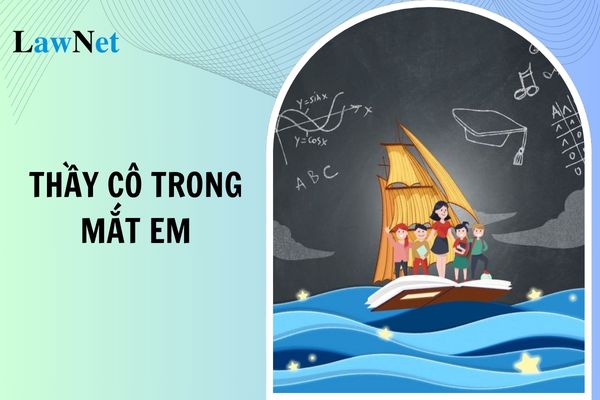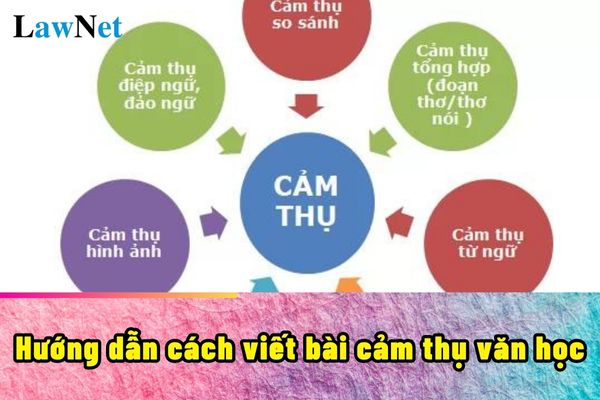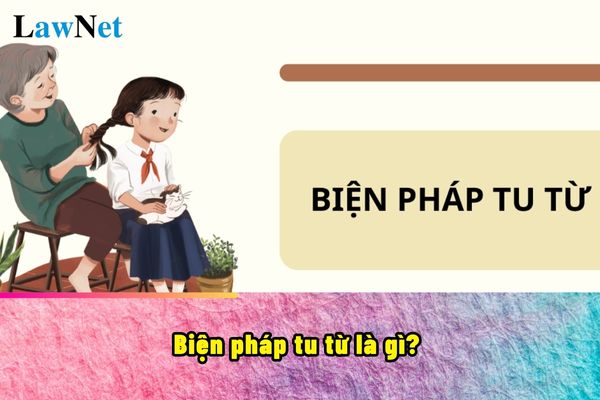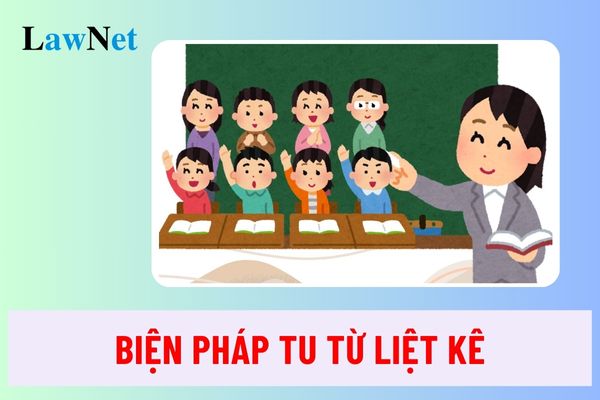What is euphemism according to the Literature knowledge in Vietnam? What are effects of the euphemism?
What is euphemism according to the Literature knowledge in Vietnam? What are effects of the euphemism?
Euphemism is a rhetorical device where the speaker or writer uses gentler, more tactful words or expressions to substitute for direct ones that may be heavy, sorrowful, or vulgar.
Examples:
(1.) Speaking about death:
- Instead of saying: "He has died." ("Ông ấy đã chết.")
Euphemism: "He has passed away." ("Ông ấy đã ra đi.")
Explanation: The phrase "passed away" ("ra đi") sounds gentler and reduces excessive sorrow.
- Instead of saying: "She is dead." ("Cô ấy đã mất rồi.")
Euphemism: "She has gone to be with the Lord." (Cô ấy đã về với Chúa.")
Explanation: This phrase carries a religious meaning, showing respect to the deceased.
(2.) Speaking about poverty:
- Instead of saying: "His family is very poor." ("Nhà anh ấy nghèo lắm.")
Euphemism: "His family is facing a lot of challenges." ("Gia đình anh ấy còn nhiều khó khăn.")
Explanation: This phrase avoids hurting someone's self-esteem.
- Instead of saying: "They live in a slum." ("Họ sống ở một khu ổ chuột.")
Euphemism: "They live in an area with housing difficulties." ("Họ sống ở một khu vực còn nhiều khó khăn về nhà ở.")
Explanation: This phrase is more polite and avoids negative connotations.
(3.) Speaking about shortcomings:
- Instead of saying: "He is very lazy." ("Bạn ấy rất lười.")
Euphemism: "He needs to try harder." ("Bạn ấy cần phải cố gắng hơn nữa.")
Explanation: This phrase motivates others while avoiding hurting them.
- Instead of saying: "Your work is terrible." ("Bài làm của bạn rất tệ.")
Euphemism: "Your work needs a lot of improvement." ("Bài làm của bạn còn nhiều điểm cần phải cải thiện.")
Explanation: This phrase helps the recipient improve their work more effectively.
(4.) Speaking about failure:
- Instead of saying: "He failed the exam." ("Bạn ấy đã thất bại trong kỳ thi.")
Euphemism: "His exam results were not as expected." ("Kết quả kỳ thi của bạn ấy chưa được như mong đợi.")
Explanation: This phrase is gentler and helps the listener feel less upset.
- Instead of saying: "Our project has failed." ("Dự án của chúng ta đã thất bại.")
Euphemism: "Our project did not achieve its set goals." ("Dự án của chúng ta chưa đạt được mục tiêu đề ra.")
Explanation: This phrase is objective and creates an opportunity to find causes and solutions.
(5.) In daily life:
- Instead of saying: "This food is too salty." ("Món ăn này rất mặn.")
Euphemism: "This food is quite flavorful." ("Món ăn này hơi đậm đà.")
Explanation: This phrase is more polite, avoiding hurting the cook’s feelings.
- Instead of saying: "You talk too loudly." ("Bạn nói chuyện quá lớn tiếng.")
Euphemism: "Can you speak a bit softer?" ("Bạn có thể nói nhỏ lại một chút được không?")
Explanation: This phrase is more tactful, avoiding making others uncomfortable.
Effects of the Euphemism:
- Reducing vulgarity and impoliteness: Avoids overly blunt words that may cause hurt or discomfort to listeners/readers.
- Creating subtlety and politeness: Shows respect and delicacy in communication.
- Soothing the atmosphere, avoiding tension: In sensitive situations, euphemism helps to reduce tension and create a more comfortable atmosphere.
- Increasing the artistry of language: This device contributes to making the language more flexible, delicate, and rich in expression.
- Avoiding negative impacts: In some cases, euphemism helps avoid shocks, fears, or other negative emotions.
Additionally, using euphemism provides many benefits to students in the learning and communication process:
- Practicing communication skills:
Respecting others: Helps students learn to show respect and politeness in communication, avoiding causing harm to others.
Building good relationships: Tactful and skillful communication helps students easily integrate and build good relationships with others.
- Expanding vocabulary:
Broadening vocabulary: Finding different expressions helps students enrich their vocabulary.
Understanding language nuances: Students will better understand the richness of language and how to use words flexibly in different situations.
- Improving writing skills:
Making writing vivid and attractive: Using rhetorical devices like euphemism helps make writing more diverse in expression.
Enhancing the artistic quality of writing: This device contributes to making writing more flexible and delicate.
- Deepening understanding of literature:
Analyzing literary works: When reading literature, understanding the meaning of rhetorical devices like euphemism helps students analyze works more deeply.
Appreciating the artistic value of works: Students will recognize the subtlety in the use of language by writers.

What is euphemism according to the Literature knowledge in Vietnam? What are effects of the euphemism? (Image from the Internet)
Which grades does the 2018 General Education Program for Literature in Vietnam apply to?
Pursuant to the regulations in Article 2 of Circular 32/2018/TT-BGDDT, the program is implemented as follows:
The general education program is implemented according to the following schedule:
1. From the 2020-2021 school year for grade 1.
2. From the 2021-2022 school year for grades 2 and 6.
3. From the 2022-2023 school year for grades 3, 7, and 10.
4. From the 2023-2024 school year for grades 4, 8, and 11.
5. From the 2024-2025 school year for grades 5, 9, and 12.
The 2018 General Education Program for Literature applies to students from grades 1 to 12 starting from the 2024-2025 school year.
What are required achievements for students studying rhetorical devices in the 2018 General Education Program for Literature in Vietnam?
Based on Clause 2, Section 4 of the General Education Program for Literature issued with Circular 32/2018/TT-BGDDT, the required achievements for studying rhetorical devices in the 2018 General Education Program for Literature are as follows:
- For students in grades 3, 4, and 5, they must understand the effects of personification and comparison.
- For students in grades 6 and 7, they must understand rhetorical devices such as metaphor, metonymy, hyperbole, and euphemism.
- For students in grades 8 and 9, they must understand rhetorical devices such as repetition, pun, sarcasm, and paradox.










- Vietnam: What is the sample outline of an essay on the analysis of expressions of national spirit in the Poem "Việt Bắc" for 12th-grade students? What patriotic qualities are required for 12th-grade students?
- Vietnam: What are your thoughts on the Poem "Tiếng ru" by To Huu? How many lessons are there in the 12th-grade Literature curriculum per year?
- What are the sample essays describing your grandfather for 5th-grade students in Vietnam? What are the assessment criteria for 5th-grade students in 2024?
- Vietnam: What are the sample social argumentative essays on social media etiquette for 10th-grade students? What Vietnamese knowledge do 10th-grade students learn?
- Vietnam: Why is the French Bourgeois Revolution considered the most thorough one? What learning outcomes are required for 11th-grade students after studying the bourgeois revolution?
- Vietnam: What is the atmosphere? What is the grade at which students are required to master the knowledge of the atmosphere in the History and Geography curriculum?
- Vietnam: Why does the phenomenon of day and night alternation occur on Earth? What is the grade at which students learn about the phenomenon of day and night alternation on Earth?
- What is the newest report template on distance education at the higher education level in Vietnam?
- Vietnam: What are the shortest sample expositions on Ba Den Mountain for 9th-grade students? What learning outcomes are required for the writing process in the 9th-grade Literature curriculum?
- In Vietnam, what does local time mean? What is the grade at which local time is taught in the History and Geography curriculum?

